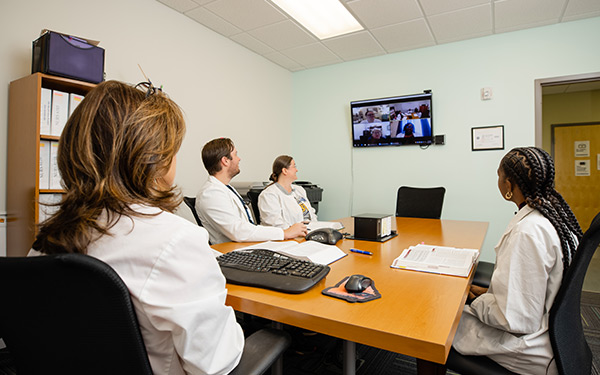GSW Website Search
- Apply
- About
- Academics
- Admissions
- Financial Aid
- Athletics
- Student Life
- myGSW
- A-Z Index
- Directory
- Map
- Visit
- Give
Nursing leadership roles come in a variety of shapes, sizes and titles, and provide nurses with the ability to lead their fellow nurses through higher titles and responsibilities. Nursing leaders may work as managers and control nursing units within a large setting like a hospital. They may choose to work as care coordinators and help design and implement policies and treatments for patients. They may also choose to work as nursing directors and take charge of all the nurses in a particular medical facility. This role is typically a highly stressful one and requires a lot of responsibility within that chosen profession. Nursing leadership roles can require long hours and it may even be necessary to work after hours.
Where Nurse Leaders Work
Nursing leaders work at tasks like organizing nursing duties and responsibilities, educating nurses throughout extended training programs, designating codes and policies for nursing staff within a particular medical facility, creating schedules and maintaining their order among the nursing staff, and treating patients. Nursing leadership can be found at all nursing stations including hospitals, military settings, government positions, community and public health roles, private clinics, nursing homes, and anywhere else that nursing staff may require leadership and management.
Some of their most frequent job titles include the following:
Master of Science in Nursing, Nursing Leadership
Health & Human Science Complex
Carter I
Tiffany Aldridge
229-931-2239
tiffany.aldridge@gsw.edu

The School of Nursing offers three admissions cycles: Fall Admission - June 30th; Spring Admission - November 30; Summer Admission - April 15th
All courses in the MSN program are offered fully online through the Georgia On My Line (GOML) learning management system. A separate sign-on is required for GOML from that of the email system used by the home institution. The GOML Common Academic Calendar details specific deadlines for each semester.
All theory (didactic/lecture) courses are offered online via GoVIEW online platform. The clinical requirements (preceptorship, practicum internship) in the curriculum will not be online. Preceptors for these experiences will be arranged in the student's locale whenever feasible. The student and preceptor in a clinical course must hold licensure as a registered nurse in the state in which the clinical experience will be provided and will comply with the Board of Nursing's regulations regarding placement.
The master's degree program in nursing at Georgia Southwestern State University is accredited by the Commission on Collegiate Nursing Education. This CCNE approval for the MSN program extends from February 1, 2021 to December 31, 2026.
Graduate students can submit required documents through the document portal after completing the admissions application process. Students must complete the following items in order to be considered for the MSN program:
